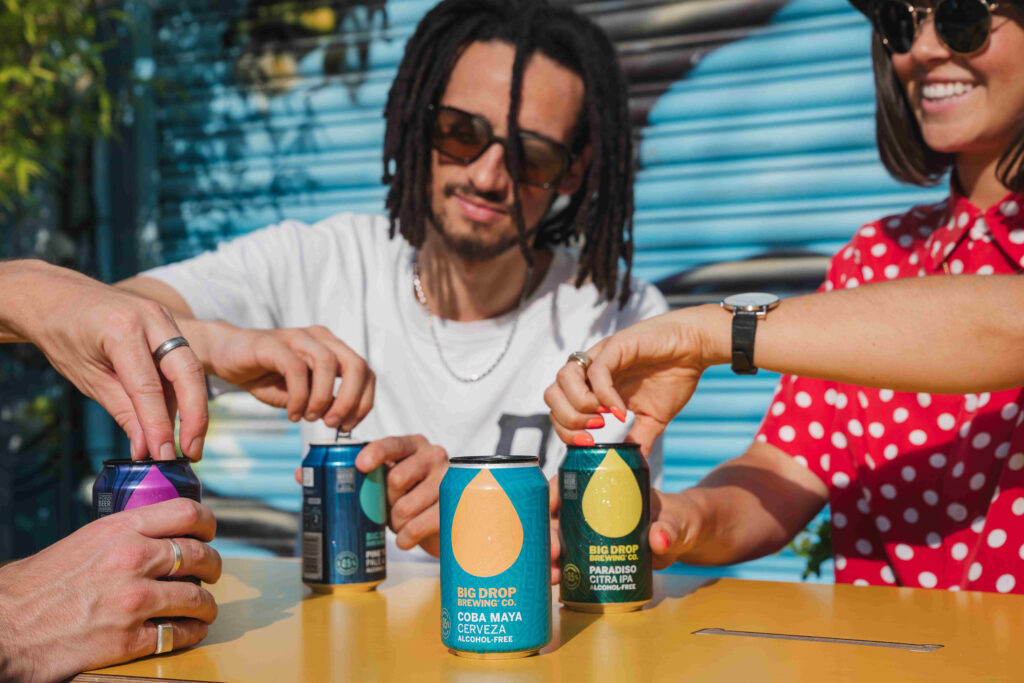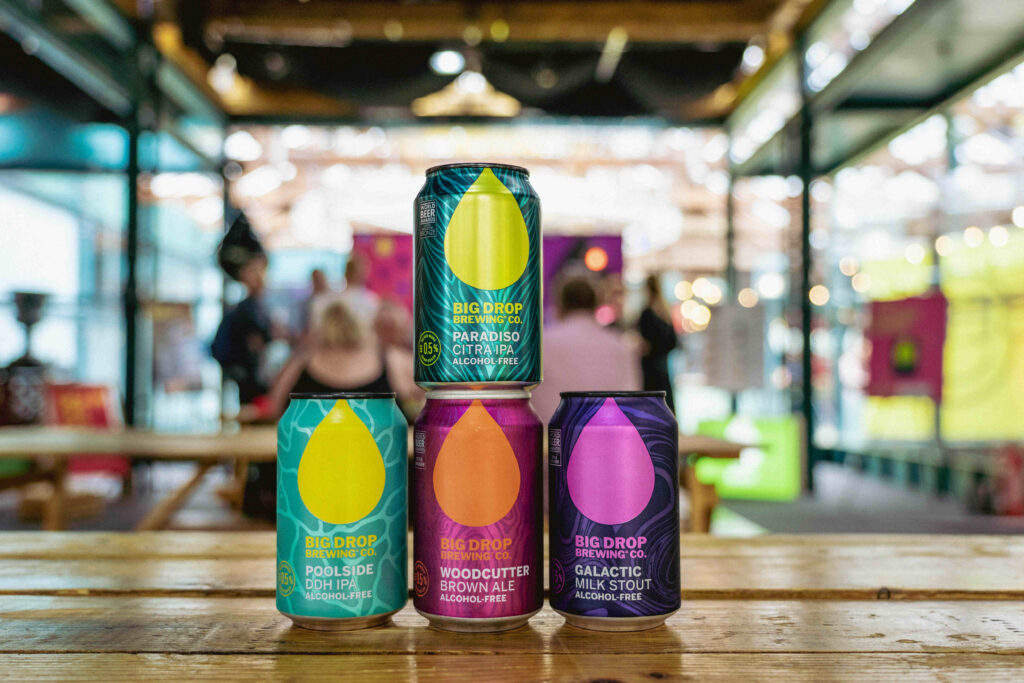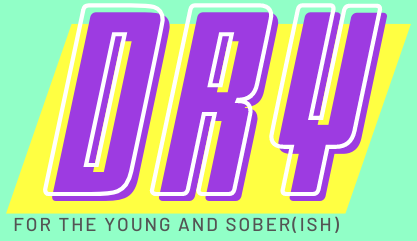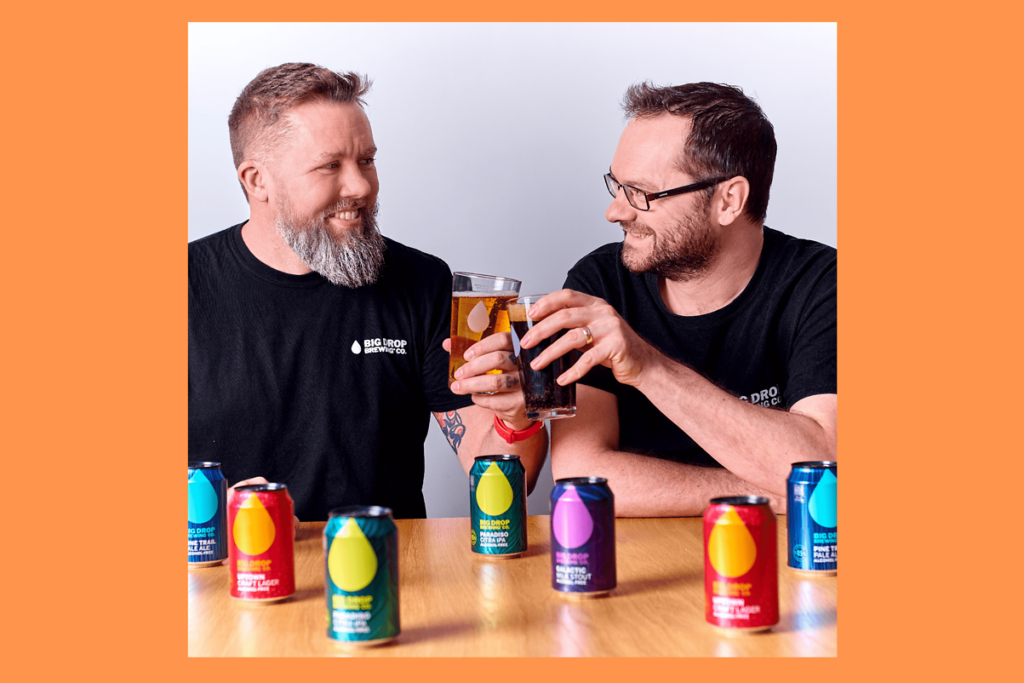Once dominated by Beck’s Blue and Bitburger Drive, the low and no alcohol drinks market has exploded in recent years, with approximately 8 million adults from across the UK taking part in 2022’s Dry January.
Proudly leading the LoNo craft beer revolution are Suffolk-based brewers Big Drop. Founded by former lawyer Rob Fink and designer James Kindred, the pair had previously played in a band together before focusing on their careers.
“Rob had a law firm in the city of London, his job was to go out and back new business developments. In law firms, that meant treating your clients to lots of boozy, luxurious lunches,” says Kindred.
In 2014, shortly after having his first child, Fink decided to quit drinking. Now a father too, Kindred says Big Drop was born two years later out of Fink’s frustration with his business lunches.
“There was nothing for him to drink. Why would anyone want to sit in a pub all afternoon drinking sugary soft drinks or tea and coffee?” He says. “Even four or five years ago, there was still a real taboo around not drinking, or going into the pub and announcing it by ordering water instead of beer.”

Fink and Kindred developed their brewing process alongside experienced brewer, Johnny Clayton, formerly of The Wild Beer Co. Upon pitching their concept, Kindred says Clayton was immediately intrigued and helped the pair identify their goal: to make a good beer that happens to be alcohol-free.
“We’re not saying stop drinking, or that beer drinking is bad. We’re saying that the low/no alcohol movement is the perfect complement for people who want to balance their lifestyles and have a choice,” Kindred says.
This mindset paid off for Big Drop. Within a year, the brewery’s products were gaining recognition against their full-strength counterparts; the Big Drop Pale Ale was named World’s Best Pale Beer at the World Beer Awards 2017, with their stout also winning a UK Silver Medal. Big Drop has since been routinely praised in the annual Global Beer Masters, Beer Challenge and World Beer Awards.
Despite its success, Big Drop initially struggled to gain traction with suppliers, who dismissed the supposed gap in the market for LoNo beers. But Fink and Kindred were not deterred. “The opportunity with our beer is that I can work my very busy job, look after the kids, have a beer and not be affected,” says Kindred.
The pair soon found other professional peers were longing for beers that didn’t affect their work productivity after two pints. This trend then accelerated in 2020, when consumers became “a captive audience at home”, struggling to distinguish their work and pleasure balance.

People had nothing to do and really wanted to enjoy a beer “but still needed to work the next day and home-school the kids”, so a Big Drop was the answer. Following the pandemic, this approach has “become part of people’s lifestyles and a choice”.
Big Drop has since found international success, with contract breweries in the UK, USA and Australia. With the quality of their beer always at the forefront, Kindred and Fink regularly visit their brewing partners and perform quality checks on their products, as well as testing competitor’s beers too.
The duo appreciate the high standard of their competitors, allowing for the LoNo space to develop as an “established industry” rather than a “small movement”. Looking towards the future of low-alcohol drinks, Kindred hopes to see LoNo labels becoming a staple of the modern pub.
In the same way that restaurants cater for people who don’t want to eat meat or have intolerances, Kindred says “you also have to cater for people who want the choice of a quality drink that doesn’t happen to have alcohol in it.” He believes that the industry is starting to see the opportunities therein.
“It’s become a lot easier because now you can just walk into a pub and say, ‘I’ll have a pint of Big Drop.’ You don’t have to loudly announce that you’ll have an alcohol free beer. You’re not sticking a flag over someone’s head over their choice of drink.”
Featured picture: Big Drop, Picture editor: Charlotte Doyle

